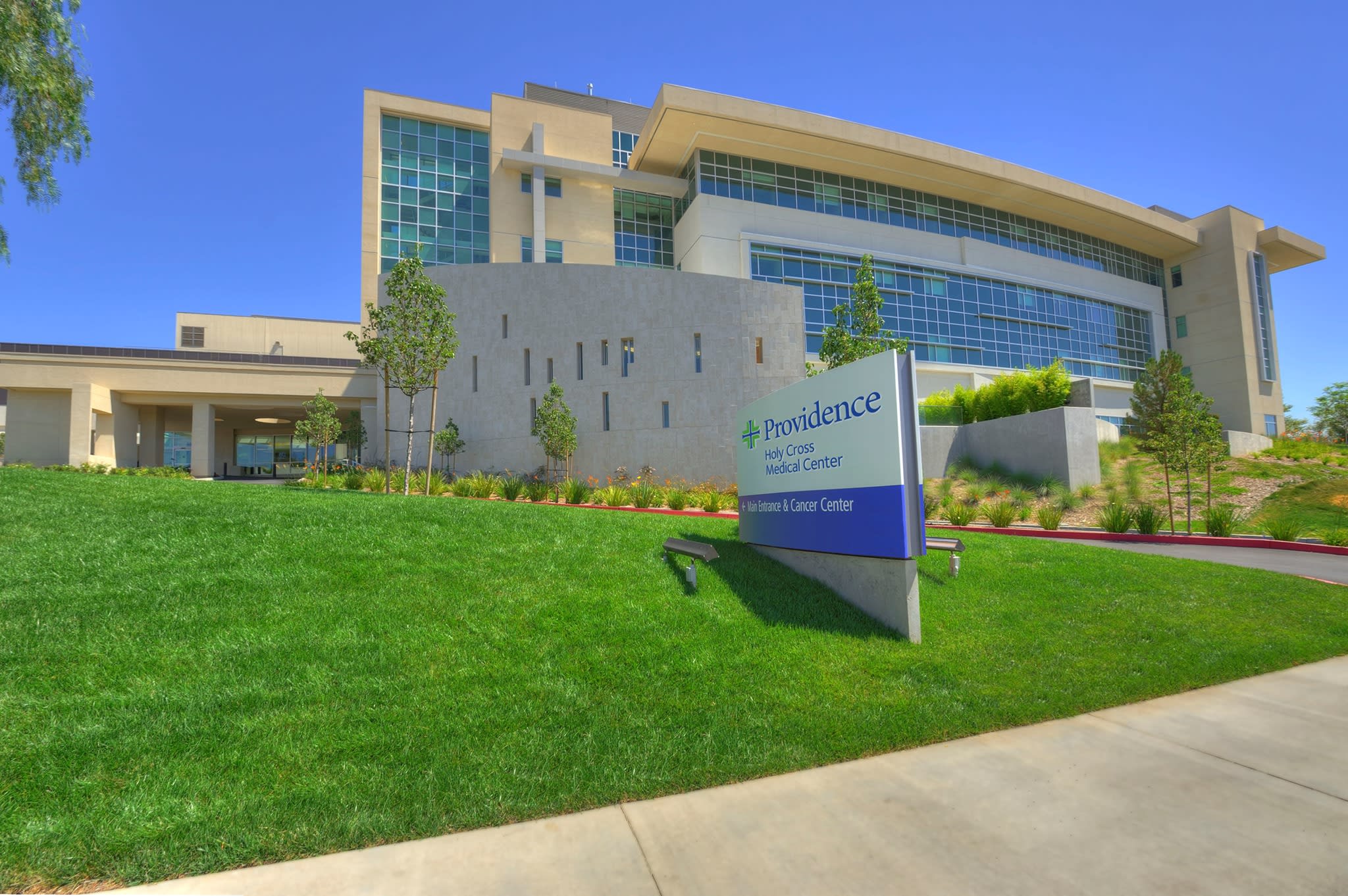Providence Los Angeles hospitals earn new accreditation as Integrated Network Cancer Program
|
From the northern San Fernando Valley to the South Bay, Providence cancer patients receive the same exemplary care at five locations, all part of one specialty network where shared expertise advances cancer diagnostics, treatment and research through clinical trials. This Providence Integrated Network Cancer Program recently earned a new three-year re-accreditation from the prestigious American College of Surgeons’ Commission on Cancer, which delivered a perfect score. |

Providence Holy Cross Medical Center in Mission Hills, Calif. |
“This is fantastic and demonstrates the commitment to high-quality care for our communities across Los Angeles and beyond,” said Laureen Driscoll, chief executive of Providence South Division, which encompasses California operations. “As a former oncology nurse and as a leader who had programs with the Commission on Cancer, I know this is an outstanding accomplishment."
The network is driven by a collaboration that determines the best protocols for based in part on regular meetings of an array of specialists who share experience, perspectives and new findings specific to each case. Comprising the network are Providence Cedars-Sinai Tarzana Medical Center; Providence Holy Cross Medical Center in Mission Hills; Providence Saint Joseph Medical Center in Burbank; Providence Saint John’s Health Center in Santa Monica; and Providence Little Company of Mary Medical Center in Torrance.
“Because of this network and the experts who lead it, our cancer patients can choose their community hospital and receive the same quality and compassionate care, close to home and family,” said Brad Bott, network administrator for Providence South Division Clinical Institutes, which drive shared expertise across the health organization’s California operations. “The network provides access to top oncologists, surgeons, radiologists, nurses and a full menu of support services that include Eastern medicine in conjunction with traditional therapies.”
Among the surveyor’s comments after meeting with doctors and administrators was praise for the “clearly profound” commitment to the network, one that includes 1,000 board-certified physicians providing cancer care.
To earn accreditation, cancer programs must meet 36 quality care standards, be evaluated every three years through a survey process, and they must maintain levels of excellence in the delivery of comprehensive patient-centered care.
Accredited cancer centers take a multidisciplinary approach to treating cancer as a complex group of diseases that requires consultation among surgeons, medical and radiation oncologists, diagnostic radiologists, pathologists and other cancer specialists. This partnership results in improved patient care.
When patients receive care at an accredited hospital, they also have access to new treatments, genetic counseling and patient centered services including psycho-social support and a survivorship care plan that documents the care each patient receives and seeks to improve cancer survivors’ quality of life.
Like all Commission on Cancer accredited facilities, Providence maintains a cancer registry and contributes data to the National Cancer Data Base, a joint program of the Commission on Cancer and American Cancer Society. This nationwide oncology outcomes database is the largest clinical disease registry in the world. Data on all types of cancer are tracked and analyzed through the NCDB and used to explore trends in cancer care. Commission-accredited cancer centers, in turn, have access to information derived from this type of data analysis, which is used to create national, regional and state benchmark reports. These reports help accredited cancer programs with their quality improvement efforts.


